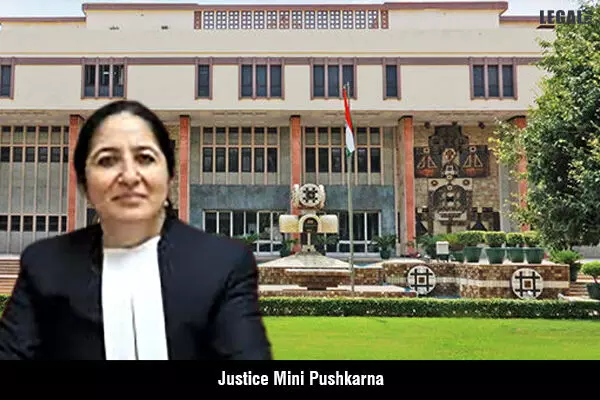- Home
- News
- Articles+
- Aerospace
- Artificial Intelligence
- Agriculture
- Alternate Dispute Resolution
- Arbitration & Mediation
- Banking and Finance
- Bankruptcy
- Book Review
- Bribery & Corruption
- Commercial Litigation
- Competition Law
- Conference Reports
- Consumer Products
- Contract
- Corporate Governance
- Corporate Law
- Covid-19
- Cryptocurrency
- Cybersecurity
- Data Protection
- Defence
- Digital Economy
- E-commerce
- Employment Law
- Energy and Natural Resources
- Entertainment and Sports Law
- Environmental Law
- Environmental, Social, and Governance
- Foreign Direct Investment
- Food and Beverage
- Gaming
- Health Care
- IBC Diaries
- In Focus
- Inclusion & Diversity
- Insurance Law
- Intellectual Property
- International Law
- IP & Tech Era
- Know the Law
- Labour Laws
- Law & Policy and Regulation
- Litigation
- Litigation Funding
- Manufacturing
- Mergers & Acquisitions
- NFTs
- Privacy
- Private Equity
- Project Finance
- Real Estate
- Risk and Compliance
- Student Corner
- Take On Board
- Tax
- Technology Media and Telecom
- Tributes
- Viewpoint
- Zoom In
- Law Firms
- In-House
- Rankings
- E-Magazine
- Legal Era TV
- Events
- Middle East
- Africa
- News
- Articles
- Aerospace
- Artificial Intelligence
- Agriculture
- Alternate Dispute Resolution
- Arbitration & Mediation
- Banking and Finance
- Bankruptcy
- Book Review
- Bribery & Corruption
- Commercial Litigation
- Competition Law
- Conference Reports
- Consumer Products
- Contract
- Corporate Governance
- Corporate Law
- Covid-19
- Cryptocurrency
- Cybersecurity
- Data Protection
- Defence
- Digital Economy
- E-commerce
- Employment Law
- Energy and Natural Resources
- Entertainment and Sports Law
- Environmental Law
- Environmental, Social, and Governance
- Foreign Direct Investment
- Food and Beverage
- Gaming
- Health Care
- IBC Diaries
- In Focus
- Inclusion & Diversity
- Insurance Law
- Intellectual Property
- International Law
- IP & Tech Era
- Know the Law
- Labour Laws
- Law & Policy and Regulation
- Litigation
- Litigation Funding
- Manufacturing
- Mergers & Acquisitions
- NFTs
- Privacy
- Private Equity
- Project Finance
- Real Estate
- Risk and Compliance
- Student Corner
- Take On Board
- Tax
- Technology Media and Telecom
- Tributes
- Viewpoint
- Zoom In
- Law Firms
- In-House
- Rankings
- E-Magazine
- Legal Era TV
- Events
- Middle East
- Africa
Delhi High Court Settles 16-Year-Old Trademark Dispute Between Akoi Family Of The Imperial Hotel

Delhi High Court Settles 16-Year-Old Trademark Dispute Between Akoi Family Of The Imperial Hotel
Resolves past enmity and ensures future harmony
The Delhi High Court has ended a 16-year-old suit by consenting to the settlement between the scions of the Akoi family over the 'Imperial' trademark for the iconic five-star, The Imperial hotel at Janpath, New Delhi.
The bench of Justice Mini Pushkarna further gave directions to Hardev Singh Akoi and his late brother Jasdev Singh Akoi's sons Raidev Singh Akoi and Gobind Singh Akoi.
The court held, "The families of Hardev Singh Akoi and late Jasdev Singh Akoi acknowledge that Hardev Singh Akoi (50 percent), Raidev Singh Akoi (25 percent) and Gobind Singh Akoi (25 percent) are the joint and exclusive owners of the 'Imperial' trademark. No one will separately apply or have any rights in the trademark Imperial or any other trademark, trade name, copyright, whether registered or unregistered, identical or deceptively similar.”
This court stated perusing the terms of the settlement between the parties and found them to be lawful.
To maintain peace and goodwill, all family members had agreed to settle the suit amicably as well and resolve all possible past, present, or future misunderstandings and differences that have or may lead to rift and protracted litigation between the families of Hardev Singh Akoi and Jasdev Singh Akoi.
The Imperial was founded by the late Ranjit Singh in 1931. It was inherited by the late Rajdev Singh. His sons Hardev and Jasdev each had 50 percent joint ownership rights and were also joint owners of the 'Imperial' trademark and the symbol of a 'lion' with a crown.
In 2007, Hardev alleged that Jasdev circulated a book titled ‘The Imperial’ written by Andreas Augustin in the hotel rooms, projecting himself and his family as sole promoters and owners of the hotel and the sole owners of the trademarks, despite being aware that he was the joint owner.
Hardev was later shocked to note that without his consent Jasdev changed the logo of the hotel, an inalienable feature of the brand.
He alleged that the original ‘lion’ symbol used by the hotel since 1938, had been replaced by an ‘elephant and a tree’ logo and the lion device was miniaturized and placed on top of the new logo. He added that Jasdev's family applied for registration of the Imperial trademark and several other marks of which the word 'Imperial' was an essential feature.
When the case reached the high court, it restrained Jasdev from modifying the trademark without the permission of Hardev. Eventually, the parties were referred to mediation.



